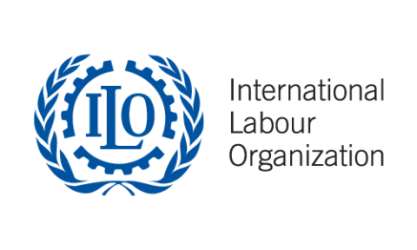
What are the proven and promising laws and policies that have been put in place to address violence and harassment in the world of work?
How do violence and harassment affect workers, business, and the “bottom line”?
How could partnerships between business, labor, and others enhance impact?
Violence and harassment in the world of work, while not a new phenomenon, has received increased attention recently, given high-profile cases and global movements. The pervasiveness of violence and harassment and the extent to which it has been “tolerated” and “normalized” is now coming to light, particularly gender-based violence and harassment. Even though violence and harassment affect every country and every sector, some forms of violence and harassment may affect certain groups of workers disproportionately, and marginalized groups may face unique experiences.
The International Labour Organization (ILO) is a tripartite UN agency, with employers’ and workers’ organizations as full partners in its governance structure, along with its 187 member states. As the organization enters its centenary year in 2019, representatives of governments, employers and workers will discuss whether to adopt a new convention and recommendation on violence and harassment in the world of work and the contents of those instruments.
The tripartite standard-setting process is a powerful example of collaborating for impact. This session offered perspectives from business, labor, the international community and civil society to demonstrate how ending violence and harassment is everyone’s business.
Catherine Feingold is a leading advocate on global worker rights issues. As Director of the AFL-CIO’s International Department, Cathy is a committed and passionate advocate, strategic campaigner, and policy expert. Catherine brings more than twenty years of experience in global worker and human rights issues with a focus on trade union rights, corporate accountability, women rights, and global economic justice. Her work in both global and grassroots fora reflect her commitment to strengthening the voice of working people in global policy debates. Catherine's professional experience includes work for the labor movement, large international organizations, small grassroots NGOs, and a foundation. She has worked on union and migrant rights organizing campaigns in the Dominican Republic and Haiti and written about the impact of economic policies on market women in Nigeria and as a Fulbright Scholar in Nicaragua, she researched the impact of structural adjustment policies on women workers. She continues to be a strong advocate for gender equity and working women issues.
Nancy B. Hammer is vice president, regulatory affairs & judicial counsel in the government affairs department of the Society for Human Resource Management (SHRM). Nancy joined SHRM in January 2006 and advocates SHRM membership views in the executive branch in order to shape federal rulemaking and influence regulatory proposals affecting the HR profession. In addition, Nancy directs SHRM’s intervention in court cases that raise critical issues for the HR profession to ensure the HR viewpoint is considered. Prior to joining SHRM, Nancy spent 5 years as legislative counsel for Senator Bob Kerrey (D-NE). Nancy also served as director of the International Division and policy counsel for the National Center for Missing & Exploited Children. Nancy received her law degree from Washington University School of Law in St. Louis, Missouri and her Bachelor of Science degree in Political Science from Nebraska Wesleyan University.
Shauna Olney is Chief of the Gender, Equality and Diversity & ILO AIDS Branch (GED/ILOAIDS) of the International Labour Organization. GED/ILOAIDS coordinates the ILO’s Women at Work Centenary Initiative, launched with the aim of identifying innovative action to give a new impetus to the ILO’s work to promote full and lasting gender equality and non-discrimination. Ms Olney studied law at the University of British Columbia, Canada, and as a postgraduate at the University of Oxford, with a focus on industrial relations and human rights. She has been with the ILO since 1991, working in the areas of equality and non-discrimination, industrial relations, international labor standards, labor law and freedom of association. Previously she worked as a barrister and solicitor in Canada, specializing in industrial relations, labor law, and human rights, and also worked at the Supreme Court of Canada. She was a Deputy member of the UN Secretary-General’s High-level Panel on Women’s Economic Empowerment, and has also authored and co-authored a number of publications on gender, equality and non-discrimination.
Rachel Vogelstein is the Douglas Dillon senior fellow and director of the Women and Foreign Policy program at the Council on Foreign Relations (CFR) in Washington, DC, and a professor of gender and U.S. foreign policy at Georgetown Law School. At CFR, Vogelstein's research is focused on the relationship between women's advancement and prosperity, stability, and security. She is the author of Ending Child Marriage (2013), Women's Participation in Conflict Prevention and Resolution (2016), Building Inclusive Economies (2017), and Countering Sexual Violence in Armed Conflict (2018). From 2017 to 2018, Vogelstein was a visiting fellow with the Center for Global Legal Challenges at Yale Law School, where she taught a seminar on women’s issues in U.S. foreign and national security policy. Vogelstein graduated magna cum laude from Columbia University's Barnard College and cum laude from Georgetown Law School, where she was executive editor of the Georgetown Law Journal. She is a recipient of the Secretary of State's Superior Honor Award and a National Association of Women Lawyers Award.
Eric Biel joined the Fair Labor Association (FLA) as Senior Advisor in January 2018 after serving as Associate Deputy Undersecretary in the U.S. Department of Labor’s Bureau of International Labor Affairs (ILAB) from 2012 to 2017. His responsibilities at the FLA include coordinating work on complaints concerning factory conditions, overseeing major projects, and working with business and civil society stakeholders on a range of legal and policy issues. During 2017, he worked on projects with business and civil society groups, spoke frequently on trade, labor, and business and human rights issues, and served on the Council on Foreign Relations Task Force on the Future of the U.S. Workforce. Since 2008, Biel has taught a course at the Georgetown University Law Center on “Human Rights at the Intersection of Trade and Corporate Responsibility.” He has a B.A. degree from Johns Hopkins and a joint J.D.-M.P.A. degree from Yale Law School and the Woodrow Wilson School at Princeton.

How can we build organizations that systematically use data to learn and improve?
How can we build government capacity to use data and evidence?
How could we make better use of program implementation and administrative data to increase impact?
Debates around evidence-informed policy have focused on the value of impact evaluation to inform development policy and programs. But the routine data collected through program implementation holds significant power to improve development outcomes beyond the standard “monitoring and evaluation” frameworks.
Evidence for Policy Design (EPoD) is a research program at the Harvard Kennedy School that works to promote the use of analytical insights, drawn from economics and backed by rigorous evidence, to inform the design and implementation of public policies and programs around the world. As part of its mission, uniting research and practice for smart policy, EPoD develops innovative approaches to harness routine data for improved program management and implementation. The program also builds capacity, in both public and private sectors, for systematic data and evidence use to drive “learning organizations.”
In this session, we discussed our capacity building approach and examples of data innovations in India, including using timestamped process data to track public entitlements directed to vulnerable households and collecting data enabled through new technology to increase women’s access to information and empowerment. The interactive session also challenged participants to think about how they could make better use of data systems in their own organizations.
Charity Troyer Moore is India Research Director for Evidence for Policy Design at the Harvard Kennedy School. She leads research-policy engagements with a variety of entities in India to ensure that research is attuned to the problems facing policymakers and integrated into policy design and program implementation. Charity's research examines how to use technology to improve public service delivery and governance; the drivers and potential solutions to India’s low female labor force participation; land rights; and social protection programs. She holds an M.A. in Economics and Ph.D. in Agricultural, Environmental, and Development Economics from The Ohio State University.
Emily Myers is the Associate Director of Training and Policy at EPoD, where she leads EPoD’s training portfolio and develops new policy partnerships. Her work focuses on strategies for building government capacity to use evidence to strengthen policy design and service delivery. In 2013, she helped to design and launch the Harvard Building Capacity to Use Research Evidence (BCURE) Program. She has a background in international development and health, and has previously worked on health systems reform projects in Malaysia and Mexico. She holds a Master’s in Public Administration in International Development (MPA/ID) from the Harvard Kennedy School.
Charlotte Tuminelli is the Senior Training Manager at Evidence for Policy Design (EPoD). In her role, Charlotte plans and delivers EPoD’s capacity building activities, which aim to build trainees’ capacity to use evidence in decision making. Her work focuses on ensuring that EPoD’s trainings are pedagogically sound, practically relevant, and smoothly delivered. Prior to joining EPoD, she supported course delivery and research projects for faculty at Harvard Business School. She has also served as a teacher in rural India, worked for a number of Boston-area nonprofits, and consulted on local and international education projects. Charlotte holds a Master’s in Education (Ed.M.) in International Education Policy from the Harvard Graduate School of Education and a B.A. in International Studies and Foreign Languages from Stonehill College.


1621 North Kent Street, Ste 900,
Arlington, VA, 22209
P 202.534.1400
F 703.276.1433
Website Photos: © mari matsuri
